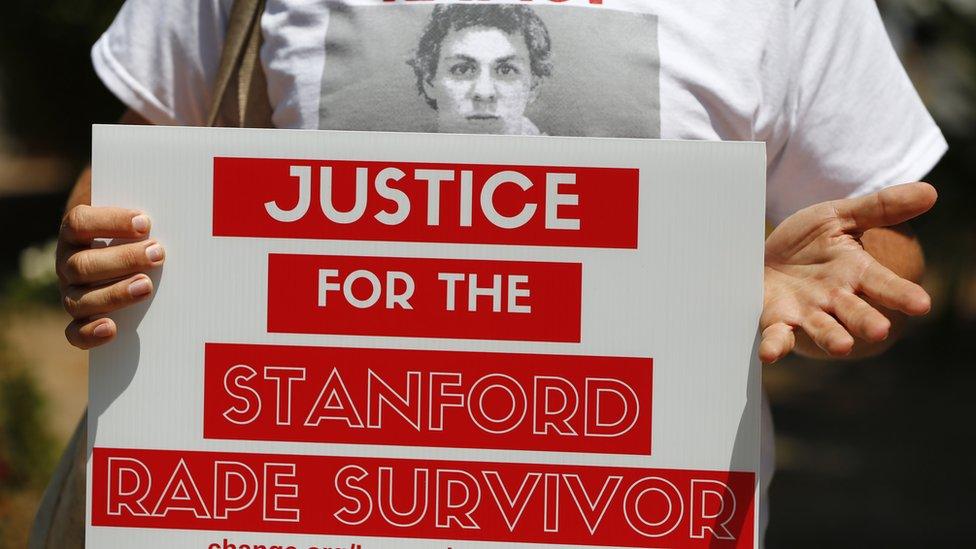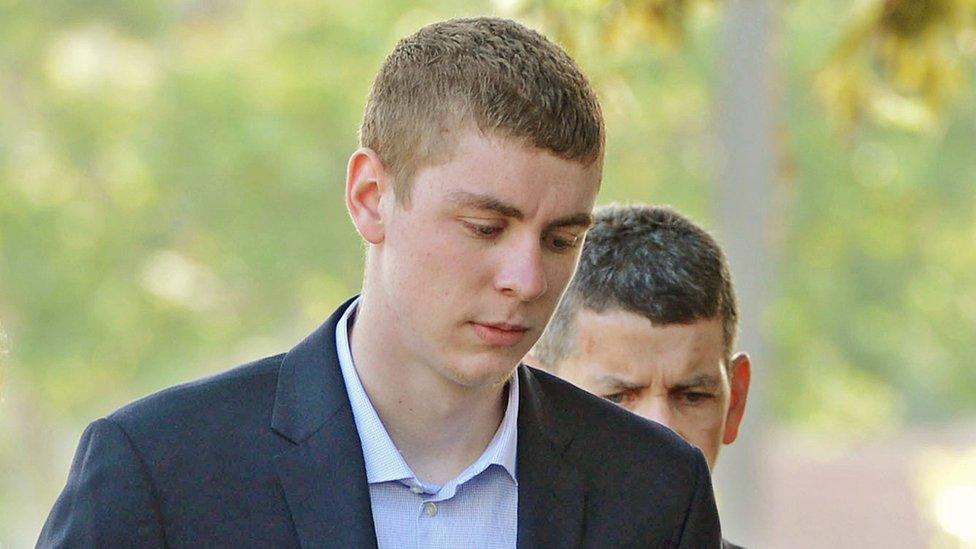Stanford sex attack: Brock Turner loses assault appeal
- Published

Brock Turner's case garnered notoriety in 2016 after the victim's witness statement went viral
An appeals court has rejected an attempt by former US college student Brock Turner to have his sexual assault and attempted rape felonies overturned.
His case garnered national attention in 2016 after the former star swimmer was sentenced to just six months in jail.
A three-judge panel in a San Jose, California court ruled Wednesday that arguments put forward by Turner's lawyer for a new trial lacked merit.
The ruling means the 22-year-old will remain on the sex-offenders register.
Turner was originally arrested in 2015 after two students witnessed him assaulting an unconscious woman outside a Stanford University fraternity house party.
In 2016 a jury found him guilty of three charges: sexually assaulting an intoxicated victim, sexually assaulting an unconscious victim and attempting to rape her.
Although prosecutors had sought a six-year term for his crimes, Turner was sentenced to six months and released after serving three.
The case judge, Aaron Persky, was widely criticised for leniency and removed from office by voters earlier this year after a recall campaign.

Judge Aaron Persky was voted out in Santa Clara County after being cleared of misconduct by the California Commission on Judicial Performance
In July Turner's lawyer Eric Multhaup argued gaps in the prosecution's case meant jurors had used "speculation" and "filled in the blanks" to reach their guilty verdicts.
He told the court justices there was no evidence to prove at what point the woman lost consciousness, and argued his client did not intend to rape her because he was found fully clothed, instead describing Turner's actions as "outercourse".
But the appeal court on Wednesday said the trial was fair and upheld his convictions.
Turner could still petition the state's supreme court to consider an appeal.
His case gained notoriety after a moving impact statement by the victim was shared widely online, external.
It sparked a national debate about sexual assault and whether white men from wealthy backgrounds were treated more favourably by the US justice system.
Outrage at the sentencing was compounded by a letter from Turner's father suggesting his son's life stood to be "altered forever" and argued he should not be jailed for "20 minutes of action".
- Published27 June 2017

- Published6 June 2016

- Published15 September 2016

- Published1 October 2014
